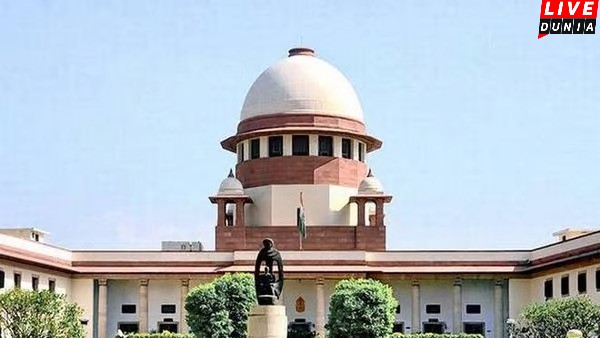Citing several Supreme Court judgments, the government said in an affidavit that under Article 21 of the Constitution, foreigners have only the right to life and liberty, not the right to live and settle in the country. This right belongs only to Indian citizens. India does not recognize the UNHCR refugee cards some Rohingya Muslims received to apply for refugee status.

New Delhi: The Center has told the Supreme Court that illegal Rohingya Muslim migrants do not have a fundamental right to live and settle in India and the judiciary, in consultation with Parliament and the executive, has created a separate category to give them refugee status, who have entered India illegally, enter the legislative and political arena.
India is already grappling with massive illegal migration from neighboring countries (Bangladesh), which has altered the populations of some border states (Assam and West Bengal). “Besides the ongoing illegal migration of the Rohingya into India and their illegal presence in India, there are serious security implications,” he added.
He said that a large number of Rohingyas in different parts of the country were carrying forged/forged Indian identity documents and they were involved in human trafficking and subversive activities, posing a threat to internal and national security.
A government statement highlighted the challenges posed by large-scale illegal migration from neighboring countries, particularly Bangladesh, which has changed the demographic profile of some border states like Assam and West Bengal. He stressed that the ongoing illegal migration of Rohingyas to India is not only illegal but also has a serious impact on the security of the country.
The affidavit also cites credible reports that many Rohingyas are involved in fake Indian identity cards, human trafficking, and subversive activities across the country. The action is considered a threat to internal and national security.

Responding to petitioner Priyali Sur seeking the release of detained Rohingyas, the government confirmed that those who entered India illegally would be dealt with under the provisions of the Foreigners Act. He also clarified that since India is not a party to the 1951 Refugee Convention and its Protocols relating to the status of refugees, it will address the Rohingya issue based on its national framework.
The government says India is not a signatory to the 1951 Refugee Convention or the Protocol on the Status of Refugees. The government therefore agreed that New Delhi should deal with the Rohingya according to its national norms.
“Whether to recognize certain categories of people as refugees is purely a political decision,” the government told the High Court. There can be no recognition of refugee status and refugee status outside the legal framework. “Such a statement cannot be made by the court. Equality rights are not available to illegal immigrants.
The government rejected the petitioner’s demand that the Rohingya be treated equally with refugees from Tibet and Sri Lanka, saying, “Whether or not to recognize certain categories of people as refugees is a purely political decision. refugees by name. Members of the organization cannot be identified. out of state. legal framework and such claims for refugee status cannot be based on judicial decisions… The right to equality is not available to Foreigners and illegal immigrants.










